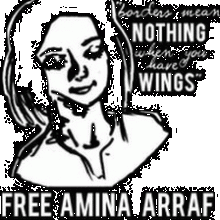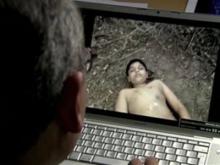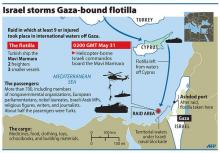Playing the information game
Thought piece
 discovered to have been behind the popular and gripping Gay Girl in Damascus blog. His identity was uncovered when readers tried to make sense of the sudden disappearance of 'Amina', the 'gay girl' readers were led into thinking was behind the blog.
discovered to have been behind the popular and gripping Gay Girl in Damascus blog. His identity was uncovered when readers tried to make sense of the sudden disappearance of 'Amina', the 'gay girl' readers were led into thinking was behind the blog. Fearing that Amina had been picked up by Syrian authorities at the start of the uprisings there, journalists quickly discovered that Amina, a Syrian lesbian, did not actually exist, and her blog was a lie. When Amina 'disappeared' from the internet, media organisations, most notably the Electronic Intifada and the US-based National Public Radio and Washington Post, launched investigations that involved carefully matching and linking data and meta data on photographs posted in online albums, email correspondence and even IP addresses. It was through this information that McMaster's identity was eventually revealed. This digital sleuthing was made possible because of the traces that we leave behind us online. The incident also highlighted the constant need for verification of information from online sources, something that journalists are familiar with.
McMaster said he had wanted to open a Western audience's eyes to the realities of repression in Syria. What he did not realise was that understanding an issue and representing it sensitively are two different things. The effects of the deception on Amina's queer Arab fan base were severe. Queer Arab activists revealed that the fraud put local groups and individuals in a position of having to either 'prove' their queer credentials by outing themselves, or be suspected of fraud if they didn't. Many found that the anonymity they used to organise and express themselves online was now under threat of being considered fake merely because they didn't reveal their identities.
In June 2011, the BBC's Channel 4 released the first of its two-part documentary film Sri Lanka's Killing Fields about the war crimes perpetrated by the Sri Lankan government and army on Tamil citizens in the North of the country towards the final weeks of the armed conflict. The films are based on first-person narrative accounts, photographs, and video footage from a range of sources including 'trophy videos' taken on mobile phones by Sri Lankan Army soldiers, and by citizens, victims, aid workers and doctors on the ground amid the shelling and gunfire.
Before the first film could be released, all this information had to be carefully verified by forensic teams and analysts to confirm that they had in fact come from Sri Lanka and were taken in those very locations, and that the interviewees/survivors who gave their testimonies were in fact Tamils from the North of Sri Lanka. The Sri Lankan government retaliated by making its own film, Lies Agreed Upon, which challenged the BBC's documentary on the grounds that the evidence used in the film was unverified, tampered with, doctored and was fabricated to malign the Sri Lankan leadership and armed forces. In their second follow-up film, the BBC included interviews with their analysts who talked about how they had verified the evidence they had used.
In the aftermath of their attack on the Freedom Flotilla, the Israeli Defence Forces (IDF) launched a public relations campaign using Flickr and Youtube to discredit the activists on board the vessels in the flotilla. The IDF posted videos and photographs that were intended to show that the naval convoy of activists was carrying weapons and had used them to viciously attack the IDF. However, suspicions arose when people who examined the photographic evidence from the IDF found that the the timestamp on the metadata of the photographs did not match the actual timing of their raid on the Flotilla and were probably taken in 2006. The recordings of radio communication between the Flotilla and the IDF was also believed to have been doctored as part of the IDF's appalling propaganda against the Free Gaza movement.
There's a conundrum inherent in the flow of information around us. The ability to create, control and manipulate it produces a sense of agency, yet understanding how information behaves across and through digital media occurs slower than the pace of information itself, making it difficult to manage. This discussion presents recent cases and incidents that move away from the linear understanding of digital technologies as being either liberatory or not. This is about how the power to create, use, access and share information is also riven by doubt, manipulation and mishap. And what does this tell us about the digital context and culture of activism and what is possible within it? Activists and advocates now have to be ever more careful and, watchful and consider a multiplicity of choices in the creating, accessing, remixing and presenting of information to mobilise and communicate their causes.
FURTHER READING:
How the Professor Who Fooled Wikipedia Got Caught by Reddit, The Atlantic, 2012.
Truth in the Age of Social Media, Nieman Reports, Harvard University, 2012.


